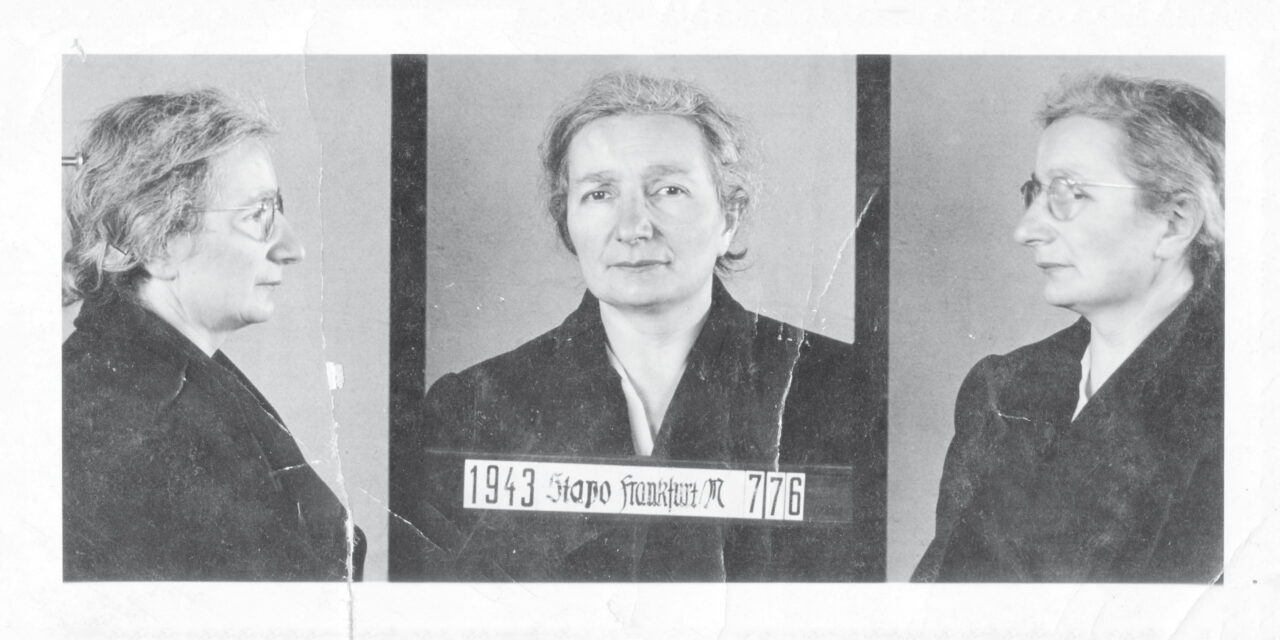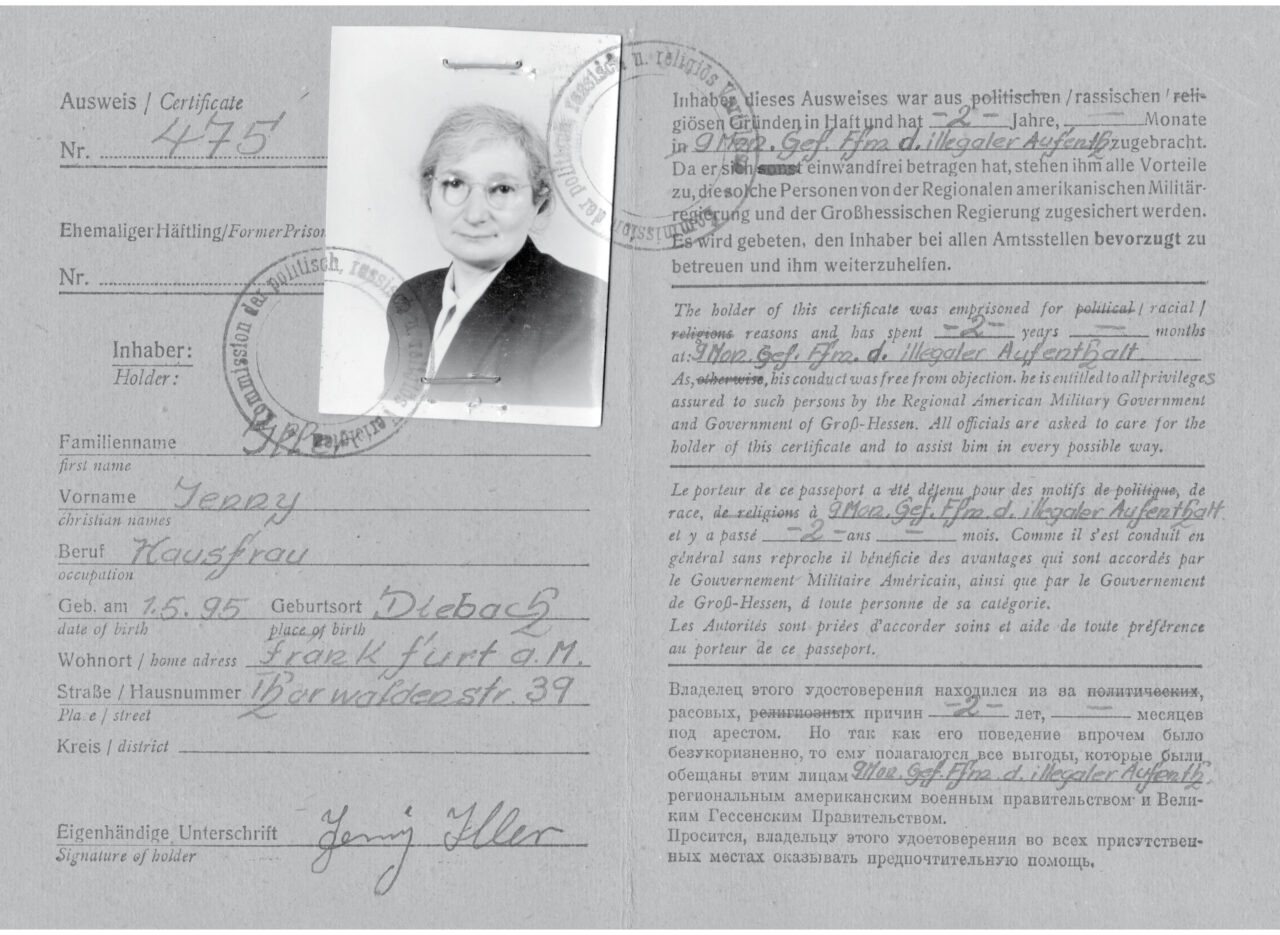Jenny Iller was summoned to the Gestapo office in Frankfurt‘s Lindenstrasse together with her daughter Ruth on 11 March 1943 and arrested there. The arrest took place within the framework of the »Aktion zur kalten Erledigung der Mischehen« (Action for the Cold Elimination of Mixed Marriages) carried out by the Frankfurt Gestapo in 1942/1943. The aim of the Nazis was to collect the Jewish spouses of so-called »mixed marriages« between Christians and Jews for deportation to the concentration and extermination camps. In addition to »simple mixed marriages« between Jewish men and Christian women, the National Socialists defined marital unions between »German-blooded« Christian men and Jewish women, which were concluded before the 1935 »Nuremberg Race Laws«, as »privileged mixed marriages«.

According to the guidelines of the Reich Security Main Office (RSHA) in Berlin, the »privilege« of these marriages was relative protection from deportation and murder. Nevertheless, the Frankfurt Gestapo devised ways and means to get hold of the group of people defined in this way. This was also the case with the Jewish woman Jenny Iller. In addition to the Jewish spouses of so-called »privileged mixed marriages«, the children born of these marriages were often persecuted and murdered as »half-breeds«, especially in Frankfurt.
Thus Jenny Iller, then 48 years old, together with her 19-year-old daughter Ruth, classified by the Nazis as a »Mischling«, were sent to the Klapperfeld soon after their arrest by the Gestapo via a kind of emergency prison in Gutleutstrasse. The prison conditions were cruel. Jenny Iller‘s husband and Ruth‘s father fought from the beginning to save his family. He obtained a relatively harmless poison from a pharmacist friend, which caused fever and nausea. This drug was smuggled into the prison cells with the help of a prison guard. The plan was to be admitted to the police hospital in Hermesweg by taking the poison and to escape from there.
But the Gestapo had already signed the transport ticket to Auschwitz. So Ruth, who had been the first to take the poison, returned to the Klapperfeld after a few days. Her mother Jenny also took the poison a short time later, but she managed to escape with the help of friends from the police hospital. Shortly after her escape, she was able to go into hiding with friends in Frankfurt‘s West End. Ruth was released from the Klapperfeld a little later on orders from Berlin. This circumstance can most likely be traced back to the intervention of the Berlin bishop Wienken, who was particularly committed to the half-Jewish children.
With the help of their husband and father, the two managed to escape from Frankfurt in 1944. Mother and daughter hid with a helpful family in Spessart. Before continuing their escape from there to Wiesbaden, where they again found shelter with escape helpers, the Iller couple devised a plan to fake Jenny‘s suicide. To do this, the husband scattered his wife‘s clothes along the Main.
And then, during another Gestapo interrogation, Ruth took the opportunity to steal her mother‘s mug shot from the file so that no one would know what the wanted woman looked like.
She did this without knowing the plan of her parents, who, to protect her from further interrogation, did not let their daughter in on it for the time being.
From Wiesbaden, they fled back to Spessart, where they were both liberated by the Americans in May 1945.
Jenny Iller lived underground for about two years. Her daughter Ruth still lives in Frankfurt.

